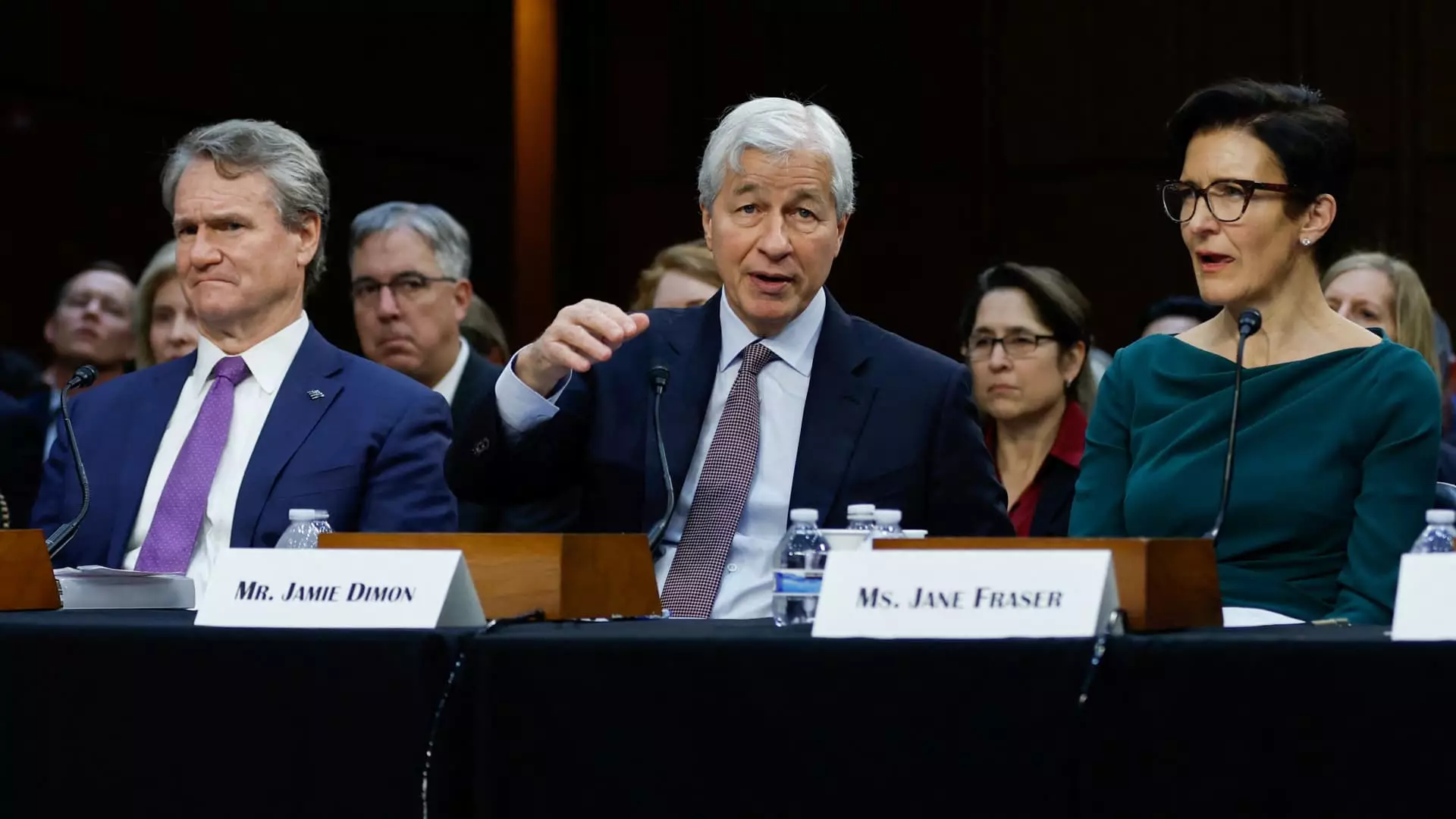In a recent Senate oversight hearing, Wall Street CEOs expressed their concerns over proposed regulations that would increase the levels of capital banks need to hold against future risks. While their testimonies aimed to raise alarms about the potential negative impact of these changes, it is important to critically analyze their arguments and consider the implications for the economy, businesses of all sizes, and American households.
JPMorgan Chase CEO Jamie Dimon claimed that if left unchanged, the regulations would raise capital requirements on the largest banks by about 25%. However, it is crucial to question the credibility of this argument, as it seems to be driven by a desire to protect the interests of the banking industry. Dimon’s warning about the potential harm to the economy, markets, and businesses of all sizes should be scrutinized, considering the self-interest inherent in his position.
The CEOs of major banks, including JPMorgan, Bank of America, and Goldman Sachs, argue that raising the cost of capital would likely harm the industry’s profitability and growth prospects. While this may be true to some extent, it is important to consider the broader implications. Stricter regulations could create opportunities for non-bank players, such as Apollo and Blackstone, who have already gained market share in areas where banks have retreated due to regulatory constraints. This shift can foster competition and innovation, ultimately benefitting the economy.
While the major banks claim they can comply with the regulations as currently constructed, there will inevitably be winners and losers. It is crucial to analyze who might be unintentionally harmed by these regulations. The CEOs’ testimonies highlighted potential negative impacts on small business owners, mortgage customers, pensions, other investors, as well as rural and low-income customers. Critics argue that these concerns should not overshadow the importance of safeguarding the financial system against future risks.
One of the main arguments presented by the CEOs is that increased capital requirements would lead to higher costs for consumers and borrowers. For instance, JPMorgan CEO Jamie Dimon suggested that mortgages, small business loans, retirement savings, and college funds could all be negatively affected. While it is essential to consider the potential consequences for these groups, it is equally important to weigh them against the benefits of a more resilient financial system that can withstand future crises.
Potential Impact on Government Projects and Rural Communities
The CEOs also warned that higher capital requirements could make financing government infrastructure projects more expensive. This could result in increased costs for hospitals, bridges, and roads, potentially impacting taxpayers. Additionally, they argued that farmers in rural communities might face higher borrowing costs and restricted access to credit. While these concerns are valid, it is crucial to balance them against the need for a stable and secure financial system that can support sustainable economic development.
Finally, the CEOs expressed their apprehension that stricter oversight on banks could lead to financial activities shifting to non-bank players, often referred to as shadow banks. They argued that this could create blind spots for regulators, potentially exposing the financial system to unmonitored risks. While this concern merits consideration, regulatory frameworks can be adjusted and strengthened to ensure comprehensive oversight, covering both traditional banks and non-bank players.
The testimonies of Wall Street CEOs during the Senate oversight hearing should be viewed critically, considering their vested interests in protecting the profitability and growth of their respective institutions. While their concerns about the potential consequences of increased capital requirements are not without merit, a careful balance must be struck between regulations and the overall stability of the financial system. Ultimately, the goal should be to ensure the resilience of the banking industry while simultaneously safeguarding the interests of consumers, investors, and the broader economy.

Leave a Reply